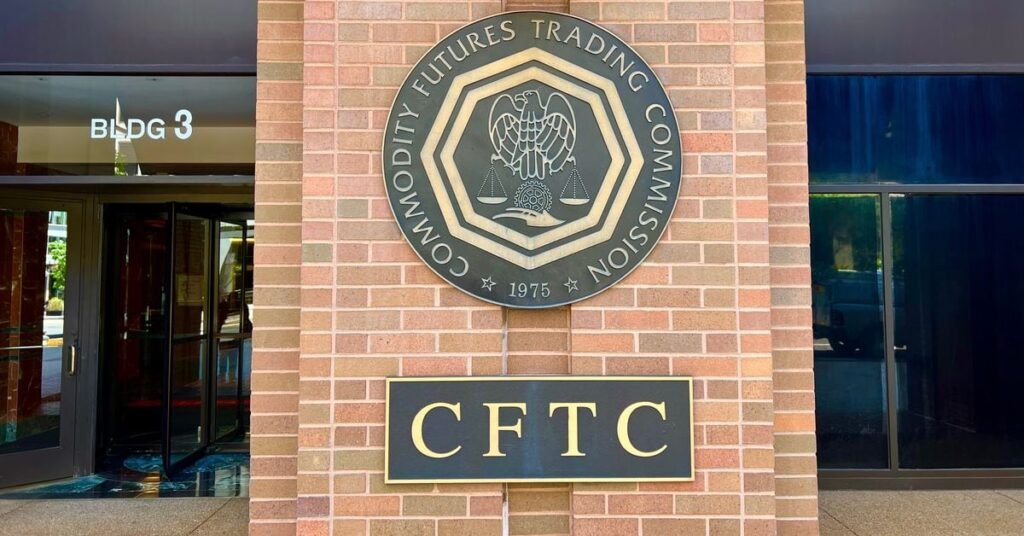
The
U.S.
Commodity
Futures
Trading
Commission
took
a
step
toward
requiring
derivatives
clearing
organizations,
a
key
type
of
intermediary
in
the
industry,
to
keep
their
customers’
money
segregated
from
their
own
funds.
The
CFTC’s
move
is
at
least
partially
inspired
by
FTX’s
collapse
last
year,
designed
to
prevent
derivatives
firms
from
meddling
with
money
belonging
to
their
clients.
In
FTX’s
case,
billions
of
dollars
of
customer
money
was
stolen.
In
a
vote
Wednesday,
CFTC
commissioners
voted
to
publish
the
proposal
for
public
feedback,
a
key
step
in
the
process
to
enact
a
rule
that
would
apply
to
any
companies
under
the
commodities
regulator’s
umbrella.
If
a
DCO
faces
a
liquidity
crunch,
such
as
a
crypto
exchange
facing
high
number
of
withdrawal
requests,
customer
funds
would
be
protected,
according
to
the
proposed
rule’s
goals.
“It’s
an
important
proposal
because
I
think
there
are
a
lot
of
outstanding
questions
about
policy
risk
and
the
law,”
said
Chairman
Rostin
Behnam,
who
voted
for
the
proposal.
“In
the
past
two
or
three
years,
we’ve
seen
an
advent
of
new
market
participants
with
new
ideas
about
how
markets
function
and
what
they
view
as
the
most
efficient
sort
of
execution
models
for
for
their
business,
whether
it’s
in
traditional
finance
or
obviously
we’re
seeing
this
in
a
lot
of
the
crypto
space.”
The
proposal
would
allow
DCOs
to
commingle
“proprietary
funds”
from
different
clearing
members,
referring
to
any
funds
or
property
held
by
a
DCO
on
behalf
of
a
clearing
member,
but
the
regulator
would
not
let
any
commingling
of
proprietary
funds,
customer
funds
or
the
DCO’s
funds.
The
collapse
of
FTX
–
the
company
whose
one-time
LedgerX
affiliate
tried
to
blaze
a
trail
at
the
CFTC
in
clearing
customer
transactions
without
middlemen
–
was
a
“significant
motivation”
for
this
proposal,
said
Commissioner
Kristin
Johnson,
who
offered
“a
full-throated”
vote
in
favor
of
the
proposal.
Johnson
said
FTX
illustrates
“the
magnitude
of
losses
that
customers
may
experience
in
the
absence
of
regulation
that
prohibits
commingling
of
customer
funds
or
member
property.”
Commissioner
Summer
Mersinger,
who
cast
one
of
the
two
“no”
votes,
said
during
her
round
of
questioning
that
she
would
have
liked
more
time
to
review
some
of
the
issues
in
the
proposal
and
expressed
concern
that
some
issues
hadn’t
been
addressed.
She
would
have
liked
to
have
seen
a
discussion
comparing
the
proposal’s
requirements
with
existing
DCOs,
as
well
as
a
cost-benefit
analysis
for
the
proposal.
“Customer
protection
is
foundational
to
the
work
we
do
here
at
the
CFTC,
but
that
does
not
absolve
us
of
our
responsibility
to
perform
a
cost-benefit
analysis,”
Mersinger
said.
Commissioner
Caroline
Pham,
who
voted
to
concur
(essentially
an
abstention
that
supports
the
majority
of
the
votes
cast),
opened
her
statement
by
saying
the
agency
“already
has
extensive
rules
in
place”
for
protecting
customer
customer
funds
at
futures
commission
merchants
–
essentially,
a
broker
in
the
derivatives
industry
–
and
warning
that
the
regulator
must
be
careful
in
how
it
changes
existing
regulatory
frameworks.
“If
the
commission
anticipates
this
type
of
DCO
clearing
model
to
proliferate,
we
should
step
back
and
consider
all
issues
these
direct
clearing
DCOs
raise,”
she
said.
Commissioner
Christy
Goldsmith
Romero,
who
also
voted
against
the
proposal,
commented
on
how
the
actual
crypto
investors
using
a
platform
would
be
the
members
of
a
clearing
organization
that
did
not
have
FCMs
as
intermediaries,
rather
than
customers
as
they
would
typically
be
defined
in
CFTC
regulations.
“We’re
basically
sort
of
putting
these
regular
people
–
in,
like,
retail
–
in
the
role
of
an
FCM,”
she
said,
referring
to
the
disintermediated
companies
seeking
to
cut
futures
commission
merchants
out
of
the
process.
“Do
you
think
that
the
regular
people,
the
individuals
who
are
involved
in
these
matters,
understand
that
they’re
not
a
customer,
they
don’t
have
this
access
to
to
all
the
customer
protections?”
